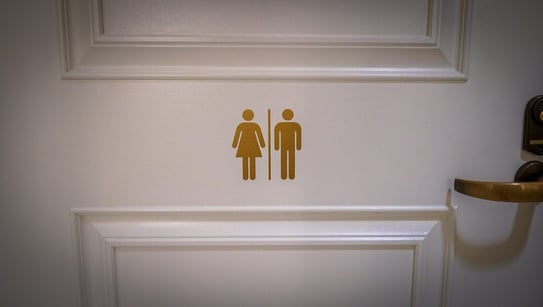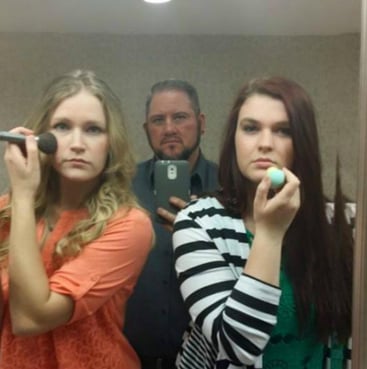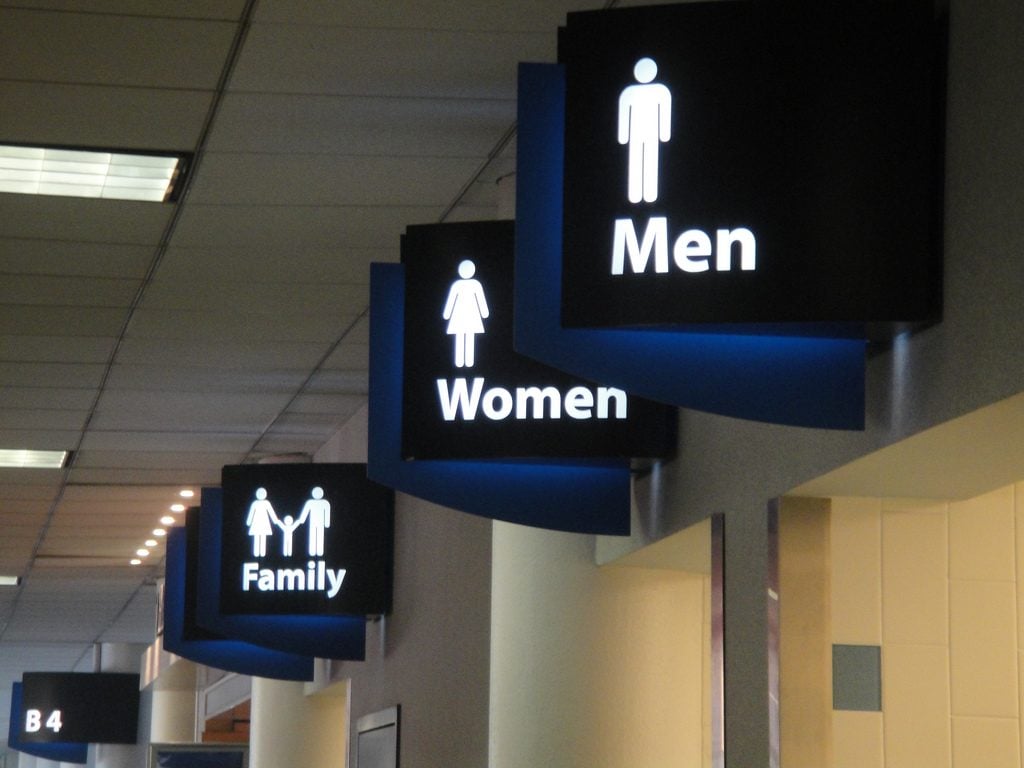Today I read an article discussing the possible criminal legal implications of the flourishing anti-trans bathroom bills. The article discussed the possible pitfalls of enforcement (there are many) and the possible legal grounds for fighting back (not as many as we’d hope). This is one of the many articles I’ve read on the subject in the past year or two. Honestly, I spend way too much time thinking about the bathroom. Lately, because of these bills, I’ve been thinking about the bathroom in academic settings. In the fight against these bathroom bills there are so many questions and possibilities that it is difficult to keep up with the bills themselves, much less with new ideas and articles published. What are the legal arguments being made? What are their strengths? Weaknesses? How can we appeal? Should we appeal? When? In what court?
I also, however, think about which bathroom I will use every single day. This has been true for at least the past two or three years, since I have adopted a masculine gender expression. I am not trans. I am a butch woman. Because I identify as a woman, I use the women’s restroom. Just a quick note before this next bit, I realize that I have a lot of privilege in a lot of ways. Telling my story isn’t meant to be representative or to suggest that I understand what it’s like to be trans. I hope only that it can give one example of an experience of the trials of using public restrooms as a person who does not fit with gender expectations.

Because of my gender presentation, using the restroom has become an often-exhausting affair. Some examples: Women regularly stare at me, from start to finish, or at least until I find some excuse to say something, so that they can hear the femininity in my voice and relax. I try to say something in every restroom I enter. Women will walk into the restroom, see me, and go check to make sure they haven’t gone into the wrong room. Sometimes they do this reflexively; other times they do it pointedly. Women will not-whisper about me, giggle about me, or shy away from me. Women will say to me, kindly or angrily or as a joke, “This is the women’s room.” When I respond, “I am a woman,” or “Thanks,” or, if I’m particularly exhausted, “I know,” the reactions range from embarrassment to laughter to scorn. Oh, and I once had a man try to physically pull me from a women’s room.
I am grateful when I can use the bathroom at home, but as I am a person in the world, I often need to use public facilities. This means hoping for gender-neutral facilities, the frequent internal debates about whether to attempt the men’s room, or asking myself if I can hold it. It may not seem like a big deal, but the constant questioning and the constant stares are exhausting, and they have a purpose, whether those who issue them acknowledge it or not. They are meant to convey to me that I do not belong.
In the debate over the bathroom bills, there have been a series of well-meaning memes and articles circulated with titles like, “Do you want me in your women’s room?” with a picture of a hairy and muscled trans man taking a selfie in the mirror. One news anchor asked a proponent of the bills whether he wanted Laverne Cox, another guest, to go to the men’s room. The point is well taken. Many trans people can pass easily and it would be bizarre and disconcerting to see them in the restroom of the sex they were assigned at birth.

Unfortunately for me, and for trans and gender non-conforming people who have it a lot harder than I do, it is already difficult to go to the restroom of our choice because we look like we do not belong. Circulating memes that reinforce the idea that men and women must and always look a certain way may make a politically advantageous point about trans people who can and choose to pass or about cisgender men and women who fall in line with expectations of gender expression. Still, it makes the point at the expense of others in the community. What does that meme do but reinforce to the women who stare at me that I don’t belong there.
Going to the bathroom in public isn’t a new problem for queer folks. Queer theorists have been writing about this for decades. See, for example, Jack Halberstam’s “The Bathroom Problem” (1998). Halberstam argues that the bathroom isn’t just a bathroom; rather, it’s a place where ideas about gender are perpetuated and enforced. It’s not accidental that gender non-conforming people, butch women, feminine men, and genderqueer folks are made to feel uncomfortable or afraid. It’s the intentional function of a system that seeks to make individuals conform to expectations of gender and sexuality for the maintenance of certain systems of power. The new bathroom bills are codifying very old dynamics. It’s not likely that trans people who can pass are at the highest risk. It’s those who cannot or do not want to pass – those who will, at best, be questioned, called perverts, or thrown out. The message is clear: the best way to avoid violence is to conform.

Fighting the bathroom bills is important for any number of reasons, but we should be critical of the tools we use. Playing into the idea that being trans means any one thing, that being a man or a woman or a person should mean any one thing, leaves those who do not fit in the assigned boxes even more vulnerable. At the core of the bathroom bills are the ideas that gender can and should be policed and that variance is indicative of perversion and danger. From the time butch dykes and drag queens threw bricks and heels at Stonewall, our community has publicly resisted this. I hope that we continue to break walls down instead of attempting to reinforce them.
 This post was written by Point Alum Sarah.
This post was written by Point Alum Sarah.

